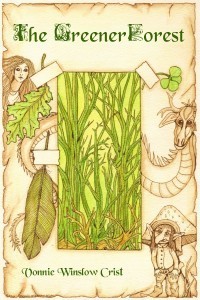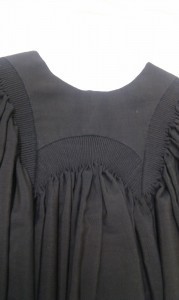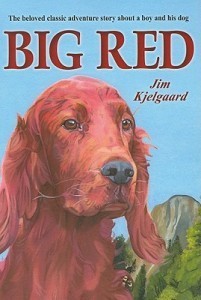L. Jagi Lamplighter's Blog, page 60
February 22, 2013
Wright’s Writing Corner: Great Ideas–Aristocracy
Finally, at long last, a new Great Ideas post!

Thorin Oakenshield, noble prince of Dwarves
Today’s post is on Idea #3: Aristocracy
First, a bit of history. The Great Ideas list was gathered by Mortimer Adler of the University of Chicago. He is the person who compiled the Great Books list that is used by St. John’s College and by Britannica for their Great Books Collection. He defined a Great Book as a book that had had a seminal influence on society and on the writers and philosophers who came after.
Adler analyzed these books to see what made them great. He discovered that Great Books contain Great Ideas. He made a list of these ideas.
The third idea is Aristocracy, which means: rule by the best. This is the concept that the best of men rule over the rest of mankind, and that they hold their superior position by right of their superior natures.
We would all like to be ruled by the best of men. Far better than being ruled by dweebs! But how do we find these men? The word Aristocracy is most often associated with the belief that people are born better or worse and that the sons of the best of men will be better than the sons of lesser men.
Much could be said on the topic, but today we are examining the subject as writers. In the real world, I doubt anyone will argue with me if I say it’s pretty clear that virtue is not conveyed by birth. But in our fictional world, we authors have control over whether or not this is the case.
If we wish our princesses to be the best of women, they will be. If we wish all aristocrats to be slovenly pigs, they will be.
A writers stance can be pro or con. Or even, both at the same time. Let’s look at both approaches separately.
The Case Against Aristocracy.
Why would an author want to make aristocrats look like bozos?
To emphasize the importance of equality before the law.
We are not born better or worse than one another. We are of equal worth.
One way of emphasizing this is by demonstrating in fiction how those who seem to be better do to improved circumstance are not better in character or quality.
The people of a class society often believe that their ‘betters’ actually are their betters—something that is hard for Americans to believe or understand. But, by showing the vices and foibles of the rich and powerful, we are reminded that these folks have to chew their food one bite at a time and walk with one step in front of the other, just like rest of us.
So if we make our hereditary rules fat and slovenly, perverse in their tastes, unnaturally cruel, absurdly callus, or otherwise horrible, we reinforce the concept that a fine birth does not assure fine qualities.
A famous example is King John and the Sheriff of Nottingham. They differ from version to version, but they are nearly always vile in some new and inventive fashion. Robin Hood, living in the forest, stealing from the fat cats and giving the wealth to the poor symbolizes freedom and the rights of man, while his oppressors are the worst and most corrupt of men.
People often forget that Robin Hood was actually Robin of Locksley, Earl of Huntingdon–aristocrat himself, and not a common thief at all.
Which brings us to our second option.
The Case For Aristocracy.
Why is it that, before the tale is told, Robin Hood turns out to be a Lord, the spunky waif is revealed to be the lost princess, and the dark mysterious stranger turns out to be the heir to the throne of Gondor?
If we are, in truth, equal, why show aristocracy as good? Why glorify a faulty concept?
The answer lies in the very nature of storytelling.
Sometimes, we want a reminder of what is good and bright and best in mankind. (Mankind— there’s a word you don’t see everyday. “Unless you’re us.*”) We want to remind our readers what a man can truly be. Of nobility, courage, virtue, and the other qualities that we all strive for, but few actually achieve.
What easier way to do this than to portray nobility at its finest: a princely prince, a knightly knight.
Why a knight and not a pig boy?
Or, perhaps more appropriately, why does our favorite assistant pig keeper grow up to be a king?
Because books only have so many pages.
Really? You say?
Really.
In a story, we writers must put across our ideas simply and quickly. We must find a way to communicate our purpose to our reader, and we must find a way to allow our main character to have dominion over the plot. A king has much more ability to affect the outcome of events than a foot soldier. A lord has more opportunity to decide whether to live nobly or go astray than a poor farmer.
To show the best of men, we put them into the situation that most tests their meddle. The easiest way to do this is to make him a king and her a princess.
Noble Is As Noble Does
In both the Lord of the Rings movies and The Lion, The Witch, and the Wardrobe, the thing that made the otherwise really beautiful and well-done movies nearly unwatchable for me was the poor handling of the characters who were, in the books, the most noble and dignified.
In particular: Aragorn and the High King, King Peter.
As a child, my favorite character in Tolkien was Aragorn, and my favorite character in Narnia was Caspian, followed by Peter. So, I was particularly devastated when they were show as whiny, uncertain, and overly emotional.
(As a brief aside, this was apparently a theme with me. My favorite character in the Hobbit was Thorin Oakenshield. My favorite character in The Weirdstone of Brisingamen was Durathror the Prince of the Huldrafolk. My favorite character in the Moomintroll books was Snufkin. I always thought of him as the MoominStrider.)
So, is it impossible to show noble characters well on film?
Not at all. In fact, it is done very well over and over again today. By the Japanese in Anime.
One also sees it occasionally in British films. The Japanese and the English, both peoples with a long history of a noble class, seem to grok nobility in a way that the Americans and New Zealanders just do not.
The Test of the Best
The other reason to write about aristocracy is to remind those living today that the world has not always been as it is now.
The below passage is a quote from my latest novel, The Unexpected Enlightenment of Rachel Griffin. However, this particular passage was actually written by my friend, Bill Burns. Nastasia Romanov, Princess of Magical Australia is the speaker. She is talking to Salome Iscariot, the richest girl in America. Miss Iscariot has just bragged that she is much richer than the pauper princess.
“Undoubtedly true, Miss Iscariot. I never dream about mere money, and beyond the borders of my own kingdom I am a pauper, as no foreign nation recognizes the currency of Magical Australia. That fact is, however, irrelevant. Money cannot buy blue blood, nor does a lack of wealth diminish it.” The princess spoke graciously, unfazed by the other girl’s show of temper. “Royalty comes with duties and obligations not required of those of common birth. Though we enjoy many advantages, our lives are not our own, but belong first to our country and our subjects. No matter how much wealth your family gathers, it cannot make you royalty, nor even nobility.”
I recently read this to another adult, who exclaimed in surprise, “What kind of duty is could she be talking about?”
He had never considered that those born into positions of authority might have obligations beyond those that weigh upon the rest of us.
However, Princess Nastasia goes on to say:
“However, there is no shame in being common, no insult in the term, nor does being born to high station make me better than anyone else. Only our actions, how we measure up to the duties we were born to, determine our worth. If you allow yourself to be groomed to take over your parents’ financial empire, you will, perhaps, assume duties similar to those required of a royal princess and might one day rise to be the greatest and most worthy of commoners.”
In Closing
We write about those held up to be the best, both to show their virtues, to remind ourselves of what men can be ,and to show their foibles, to remind ourselves, as Princess Nastasia aptly put it, that it is our actions that determine our worth.
It is the playing out of this conflict, between nobility of position and nobility of soul, that make aristocracy a Great Idea.
What are some of your favorite high born villains in books or movies?
What are some of your favorite noble noblemen?
Which movies do you think get it right?
*An extra five points to those who recognize the “Unless you’re us” quote.
February 19, 2013
Orange Peel 3
Just discovered a really intriguing Christian comic. Well drawn and intriguing. It reminds me, odd as this sounds, of what Atlas Shrugged would be like, if the characters were Christians rather than Randians. The arguments the characters give, hero and villains, are really intriguing.
http://www.orangepeel3.com/orangepeel3.com/page_1_intro.html
Live Interview on Twitter Wednesday, Feb 20th at 9pm EST
Live interview on Twitter, tomorrow night at 9pm EST.
To join in, ask questions, say hi, etc, — use the hashtag #sffwrtcht
February 14, 2013
February 13, 2013
Wright’s Writing Corner: Guest Blog–Vonnie Winslow Crist On Writing Adventures
This week, a treat, a guest blog by writer Vonnie Winslow Crist.

She writes:
JRR Tolkien wrote: “Don't adventures ever have an end? I suppose not. Someone else always has to carry on the story.” And thank goodness it's true! For carrying on the story is my mission as a writer, and I believe the goal of most writers.
I've always been a listener – the first ingredient in becoming a tale-teller. I vividly recall the stories told by relatives and family friends from the time I was a toddler. Granted, I recollect the version my child's mind heard – but journeys taken, dangers faced, choices made, prizes won, tragedies overcome, and sad endings were all a part of those tales. As I grew older, I paid more attention to the specifics, but often not enough attention. By the time a story about an ancestor who fought at Valley Forge got to the nitty-gritty details, my imagination had him mounted on a horse, swinging his saber, and fighting off goblins rather than Red Coats. Or maybe skewering goblins sporting red coats!
Goblins? Yes, for the second ingredient in my development as a tale-teller, and I daresay the development of most writers, is books. Impatient for grown-ups to sit down and read to me, by age three, I'd taught myself to read. I read fairy tales, folktales, myths, and legends whenever the opportunity presented itself. By the fifth grade, I was helping in the school's library instead of going outside for recess. Thereby, earning the privilege of checking out more books than most students were allowed to take home. Plus, I managed to learn the Dewey Decimal System and was a whiz at using the card catalog – most necessary research skills prior to computers.
Which brings me to the third ingredient in the making of a tale-teller: research. Whether research is the result of curiosity or need, finding the facts, discovering what's gone before, understanding the science, embracing the culture, and even making certain you're using the correct words are important when building upon and continuing an adventure.
Decades later, I'm still a listener, reader, researcher, and storyteller. And in my books, I attempt to carry on the adventures. “Angels,” a tale from The Greener Forest, began with a stable owner I met in West Virginia who carved wooden animals to pass the time while customers rented and rode his horses. When I asked him how he knew what to carve, he responded, “The wood tells my hands.” Now, there was a story that needed to be told.

My father once shared a rather grisly tale about a family member who is buried in two places. It seems, the young man was killed far from his birthplace and buried where he died. His mother wanted him brought home, so she got a cousin to take a trip by horse-drawn wagon to retrieve her son's bones. Alas, due to the climate, the body had mummified. The only way to bring the boy home in the smallish box purchased for that purpose was to boil the body to separate bones from flesh. After rendering, his flesh was re-buried in the first grave, and his bones were brought back to his mother and interred in the family graveyard. Gruesome? Yes, but what a beginning to my soon-to-be-published high fantasy adventure, The Enchanted Skean.
“The Burryman,” a story in my soon-to-be-released speculative short story collection, Owl Light, began with research. I was thumbing through Christina Hole's A Dictionary of British Folk Customs for an entirely different project, when I stumbled upon the entry, “Burryman's Parade.” I'm not sure I would have made up a lad sacrificed to the sea wearing a hat decorated with herring, riding a white horse, and covered with sheep's wool and burrs. But there he was, and all I had to do was continue the story.
The beginning of adventures surrounds us in family memories, books, and day-to-day life. Writers need to listen, read, research, then add that magical fourth ingredient: imagination. We won't all be a JRR Tolkien, but each of us can lift up a pen (or pull out a keyboard) and carry on the stories.

Born in the Year of the Dragon, Vonnie Winslow Crist has had a life-long interest in reading, writing, art, myth, fairytales, folklore, and legends. Both her stories and artwork are filled with mystery and magic, perhaps because she grows fairy-friendly plants in her garden, believes in miracles, and has found so many four-leafed clovers that she stores them in jars. To learn more about Vonnie, visit her website: http://vonniewinslowcrist.com and blog: http://vonniewinslowcrist.wordpress.com Her books are available at bookstores and online: http://tinyurl.com/Vonnie-Winslow-Crist-Amazon & http://tinyurl.com/Vonnie-Winslow-Crist-UK-Amazon
February 12, 2013
Appearing in Celebrate Home Magazine
A short bit I wrote on being a stay-at-home mom appears in the new ezine CELEBRATE HOME.
http://cindydyer.files.wordpress.com/2013/02/celebrate-home-winter-2013.pdf
February 11, 2013
Guest Blogging Today!
Today, I am guest blogging at the blog of Vonnie Winslow Crist. She will be visiting here on Wednesday.
Many of you may have seen this. It is my All About The Wonder essay. But go ahead and drop by and say hi to Vonnie anyway!
http://vonniewinslowcrist.wordpress.com/2013/02/11/all-about-the-wonder-by-l-jagi-lamplighter/
Alright all ye clothing savvy folk
I am looking for pictures of old fashion academic robes. In particular, I am trying to find something like the robe my grandmother had back in the 20s. It has a yoked back like this:

But I could have sworn…and perhaps I am mis-remembering, that it had some kind of padding and yoke in the front, too. Coming down to mid-chest level.
February 8, 2013
Wright’s Writing Corner: Great Ideas–Animals
Reposting the second Great Ideas post. Next week, a guest blogger, I think. Then…a new one.

The second of the Great Ideas is animals.
I am not sure why animals is a Great Idea. I wonder what Great Books include ideas about animals that led Mortimer Adler to put it on the list.
Not that I don’t love animals, mind you…and books about animals. When I was a child, I would have sworn that nothing in the universe was more important than animals. I am just surprised to find it here.
Nowadays, the shelves of the children’s and young adult sections of the book store are filled with books on vampires and magic schools. It was not like that when I was young. There were very few books about magic. Mainly, if you liked enchantment, you were limited to fairy tales and books of myth.
But there were many, many, many books on animals.
Every weekend from age 8 to 17, I volunteered at a local Nature Museum. It was not a formal arrangement. My parents would drop us off there and go jogging. One day, I approached the staff while they were building a display and offered to help. They gave me the task of sticking dried grass into corrugated cardboard, to form the effect of a grassy field.
I was hooked. I loved the people who worked there. I loved helping. I showed up and found tasks to do regularly for the next nine years, sweeping, cleaning, painting lines from Tolkien on the walls, helping carrying things during the nature programs the staff gave. You name it.
And, of course, learning about the animals, the stuffed ones, the live ones, the ones who lived win the wilderness. I went on bird walks. I followed deer prints. I showed up at night to look for owls. (My brother could do a really good impression of a 30 lb owl. We hid in a tree and tricked the Assistant Curator once.)
I loved animals. I lived animals. I breathed animals. I wanted to be an animal…or at least an animal trainer. Animal trainer or scientist was my goal in life right up to just before I left for college.
And, of course, I read about animals.
I read books about birds and books about horses. Books about cats and books about dogs. Books about flying squirrels. (Only time I ever saw one was right after that book.) Heartbreaking books about snow geese. If it has animals, I read it.
I read Misty of Chincoteague—which is why I love Chincoteague so much today. And King of the Wind—which is why I still love Arabian horses. I read the Big Red series by Jim Kjelgaard. You don’t see them nowadays, but there were a number of them and they were really popular. All about a young boy who trains an Irish Setter to compete in obedience trials.
I read a book about a boy who owned an owl, by Farley Mowat, I think…and his Never Cry Wolf—which, if you haven’t read it, is just hilarious. He was sent to discover if wolves were destroying the caribou population. The book chronicles his subsequent attempt to learn about wolves by living like them.
I read book where animals talked like Water Ship Down, and books where they did not, like Where the Red Ferns Grow. (I consider that a dog book, though you could argue it’s about the boy. ;-)
Most important of all, however, I read a book about a fox where I wanted him to catch a rabbit. And then, the next week, I read a book about a rabbit, where I dearly did not want him to get caught by the fox who chased him.
That one experience taught me more than almost anything else in my childhood reading experience.
Even today, when I listen to Conservatives and Liberals argue, I am reminded of that…that it is possible to root for both sides, even when they are inimitable to each other, that being at odds does not make you evil, that every side has its own point of view.
Maybe Adler’s right. Maybe there are Great Ideas to be learned from animals.
So…what about writing about animals?
I love putting animals in stories. Ever since the email I wrote to John in the earliest days of writing about Miranda (and the earliest days of email) that read: Help, the cat took over the scene, I have been a fan of having animals in stories. They add dimension, show us another aspect of ourselves, and can be quite amusing.
I do have one rule about writing about animals though, a very simple one. Do not call the animal by its name repeatedly in the descriptions.
I have no idea why this rule is the case. I can only tell you that I have read quite a few books—mainly fantasy novels by women—where the animal is always referred to by its name, never as ‘the horse’ or ‘the cat’, and it never seems like an animal at all. It merely seems like another human character in a costume.
I tried to write an example, to show what I meant…and I couldn’t. I made it to animal like, even in my ‘don’t do it this way’ version. Sorry. The point is, if you write about animals, remember that it is an animal. Put in details that remind us of that animal. Even if it talks, let it talk like a member of that species would talk if they could, not like a human in animal-drag.
There are a million documentaries out there on nearly every animal known to the human imagination. (There are even documentaries on animals that don’t currently exist.) If you are writing about an animal you do not know much about, it is very easy to find out more.
That’s about it. Animals in a nutshell.
What are your favorite animal stories?
February 5, 2013
Boy Scouts of America Unite!
The Boy Scouts of America are considering changing their policy on allowing homosexuals into Scout leadership positions by leaving the matter up to the local Troop.
I think this is a terrible idea!
Right now, the organization has one stance and that unity protects the members at all levels. When challenged, they can say, "I'm sorry, this is our rule."
If you turn the matter over to the local level, suddenly every well-meaning gentleman who stepped up to take on the duties of Scoutmaster will find himself at the center of a firestorm…as people on both sides rush to convince him of the importance of their opinions.
I think the BSA either needs to stick with their current stance, or change the policy unilaterally and prepare to split into two organizations: a faith-based organization and a liberal organization.
Throwing the local Scoutmasters to the dogs is not the way to decide the issue.
If you wish to weigh in:
(972-580-2000; 972-580-2401 or 972-580-2405)



